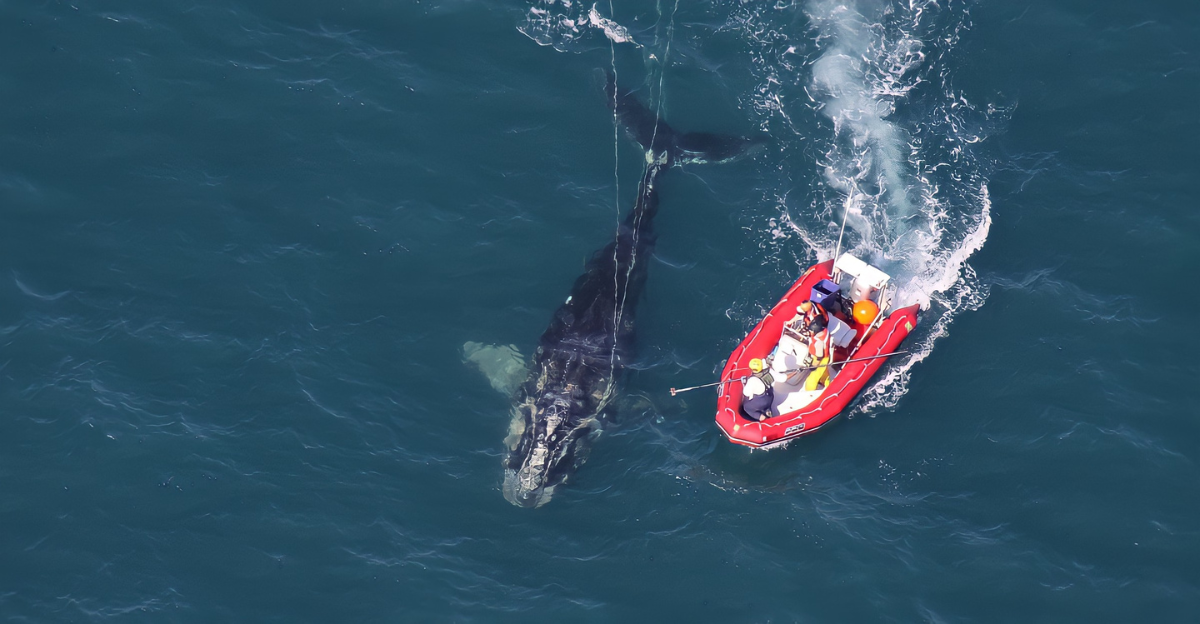
The United States Federal Government recently announced that a ban on imported seafood that doesn’t meet its marine mammal protection standards will be implemented in January 2026. The decision to halt the import of seafood linked to the bycatch of marine mammals, such as dolphins, whales, and seals, is a significant environmental milestone. Let’s take a closer look at the federal government’s decision, the role of advocacy groups, and the urgency of addressing this issue.
The Impact of Bycatch on Marine Mammals
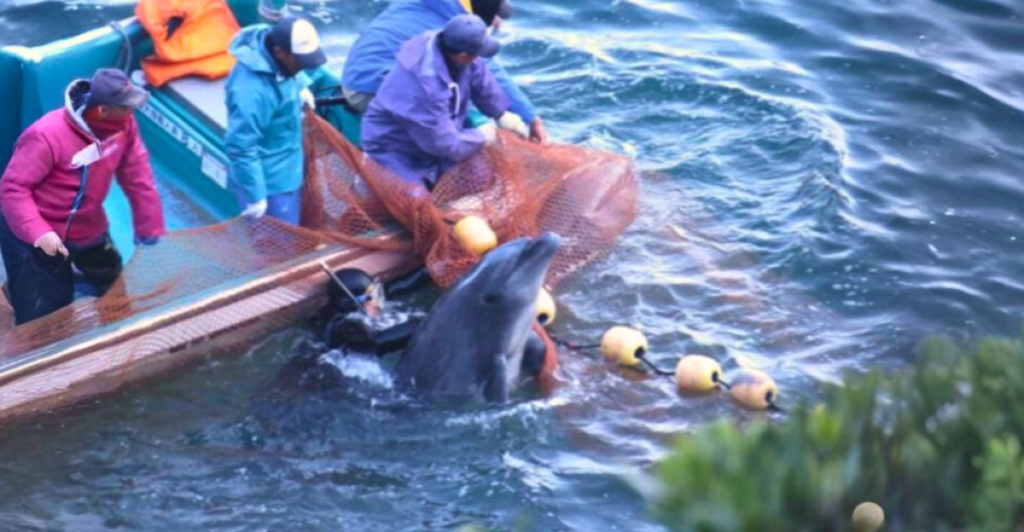
Bycatch refers to the unintentional capture of species in fishing gear, which are then discarded. This practice has been threatening marine mammal populations worldwide, with over half a million marine animals, including endangered species, such as the North Atlantic right whale (Eubalaena glacialis), being killed annually as a result. The Animal Welfare Institute’s Marine Wildlife Program indicated that most animals caught as bycatch are killed by drowning or die from their injuries after being caught in nets.
Animals Often Caught as Bycatch

With roughly 650,000 whales, dolphins, seals, sharks, and other marine mammals caught in commercial fishing gear annually, fishing practices pose a serious threat to marine mammal populations and raise concerns about animal welfare. The death of thousands of marine mammals as a result of bycatch has extremely negative impacts on marine ecosystems and highlights how these accidental deaths are pushing species to the brink of extinction.
Legislative Background and Conservation Groups
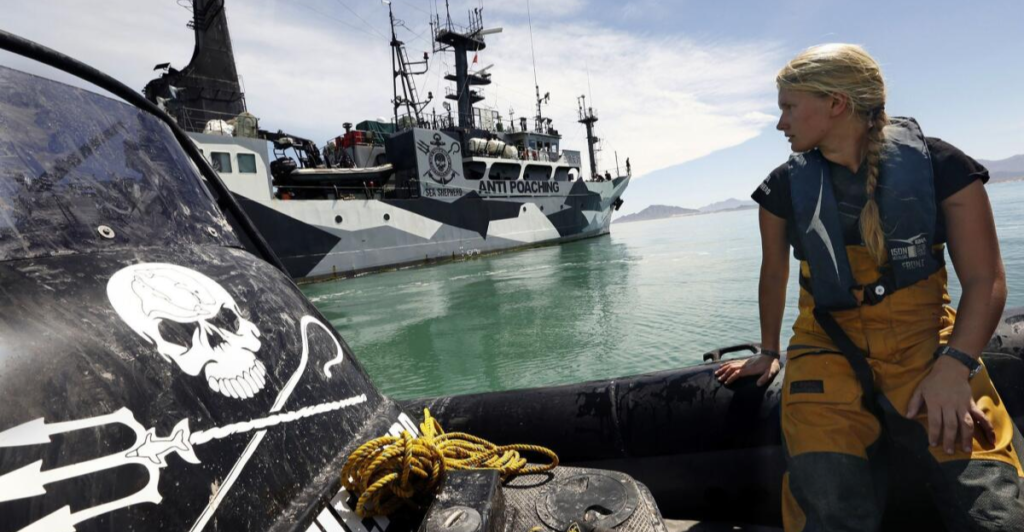
The ban started with the enactment of the Marine Mammal Protection in 1972, which prohibits the import of seafood from countries that don’t have similar standards as set out in the Act. However, the ban was rarely enforced but has now found its footing after years of advocacy by organizations, such as the Natural Resources Defense Council (NRDC) and the Center for Biological Diversity. These conservation groups eventually filed a lawsuit against the US Department of Commerce, the National Marine Fisheries Service, the US Department of the Treasury, and the US Department of Homeland Security after many delays in enforcing the Act.
The Impact on the Seafood Industry

The U.S. imports seafood from more than 130 nations, making it the largest importer of seafood globally, bringing in billions of dollars worth of fish each year. With this ban in place, we will likely see a significant recovery of marine mammals, however, there are some concerns about the short-term economic impacts to the fishing industry as fishing activities and the profits thereof take a financial hit until exporting nations shift towards adhering to the Marine Mammal Protection Act (MMPA).
Technological Innovations in Sustainable Fishing
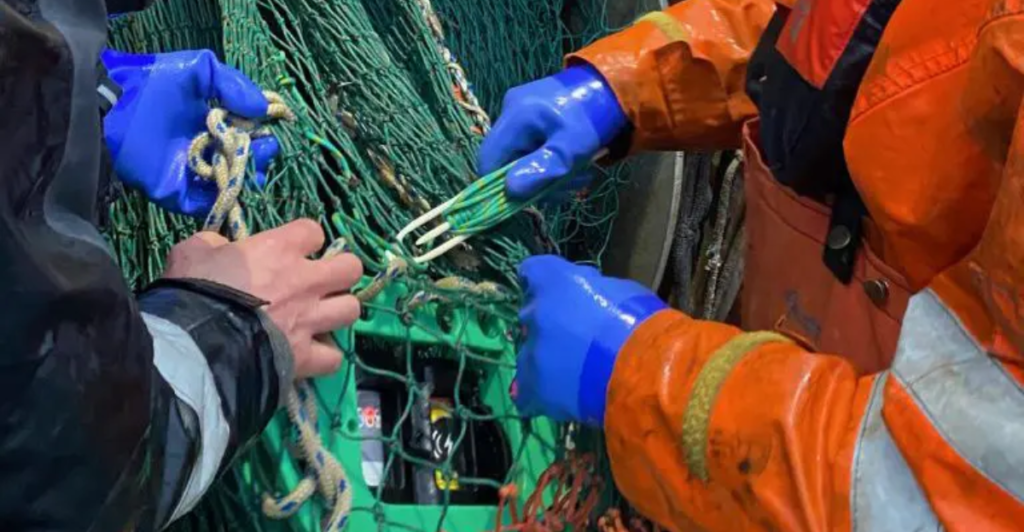
In response to growing concerns over bycatch, the fishing industry is exploring new technologies aimed at reducing unintended animal captures. For example, some in the fishing industry are introducing a new innovative device—bycatch reduction devices (BRDs)—in an effort to catch fish in a more sustainable way. BRDs are designed to minimize bycatch by including a means of escape for animals, such as dolphins, using netting, rope, metal, or plastic.
Global Implications of the U.S. Ban
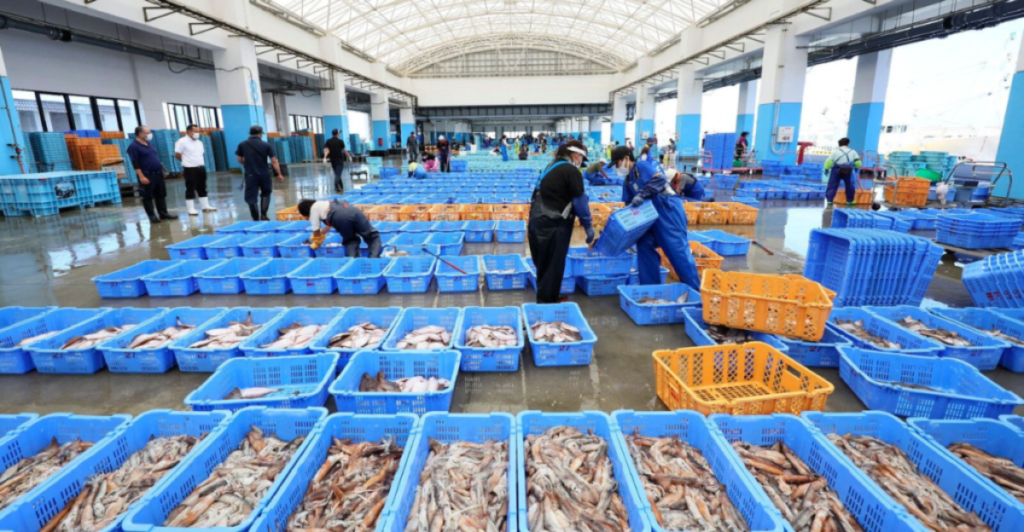
As a global leader in seafood imports, the U.S. ban is likely to influence fishing practices worldwide. By setting this example, the U.S. is potentially forcing other countries that want to export to the U.S. to adopt similar measures to comply with the ban. In doing so, the U.S. is essentially reshaping the global seafood market as stricter measures for protection will soon become not only a requirement but commonplace in the fishing industry.
The Role of Consumers
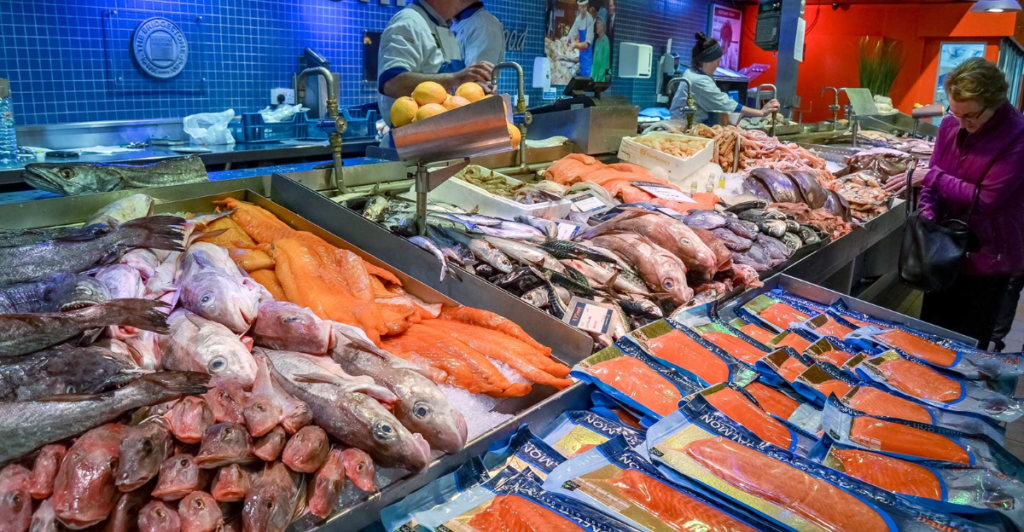
Consumers are a huge driving force in making changes in the seafood industry. As consumer awareness and demand for sustainably sourced seafood has continued to grow in recent years, the implementation of this ban will assure consumers that their seafood consumption doesn’t needlessly kill other marine life. As the power of public opinion continues to contribute to sustainable fishing practices, a reduction in bycatch and increased responsible fishing practices are likely to grow.
Challenges to Enforcement

In order to export seafood to the U.S., nations will have to provide “reasonable proof” that they adhered to standards, as set out in the MMPA, for preventing marine mammal bycatch or face bans on their exporting activities. While the ban is a major step forward, enforcement remains a significant challenge as monitoring that seafood is caught to U.S. standards will be hard to achieve. Therefore, there is an ongoing need for better international cooperation.
Economic Considerations

Some argue that the ban could harm economies reliant on fishing, however, there is the potential to shift the narrative from short-term gain to sustainable growth. For example, the ban could create a fair market for U.S. fishermen who adhere to strict regulations, ensuring they are not undercut by foreign fisheries that exploit lax regulations. This could foster a more sustainable fishing industry domestically, potentially creating more local jobs in eco-friendly sectors. This in itself provides evidence that sustainable practices could lead to long-term economic benefits.
Environmental Impact
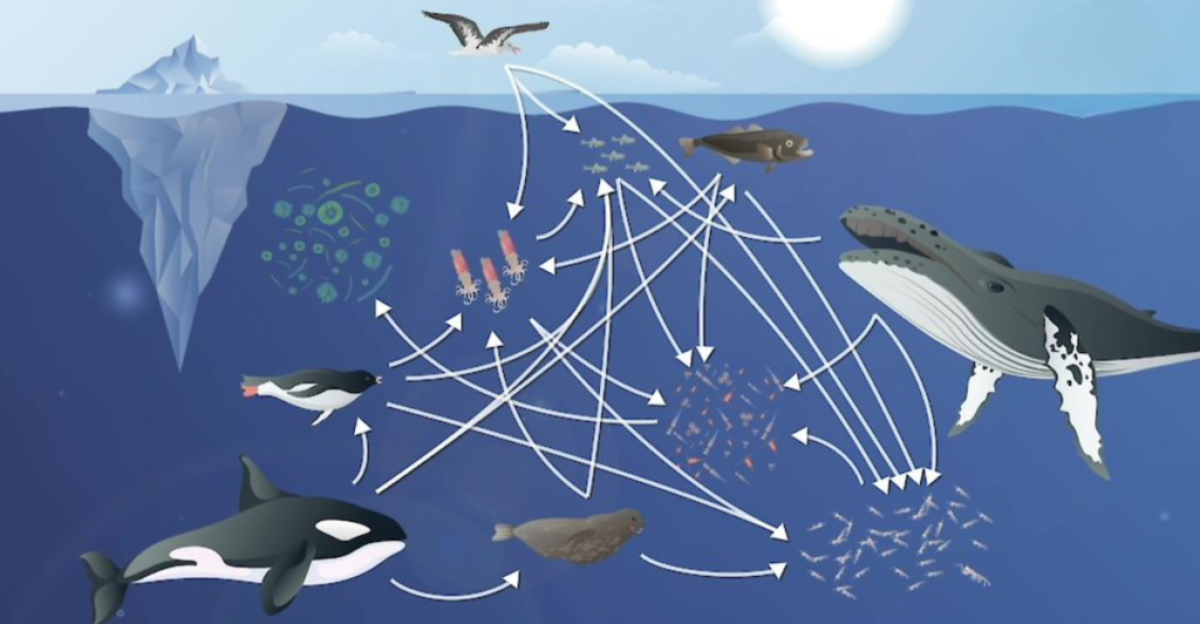
The ban helps support biodiversity by preventing marine mammal deaths. Healthy dolphin and whale populations create a balance in the marine food chain and can help mitigate climate change effects by maintaining ocean health. Further, implementing stricter regulations may encourage foreign fisheries to adopt better practices, leading to global improvements in fishing methods and international cooperation in marine conservation efforts.
History Cannot be Repeated
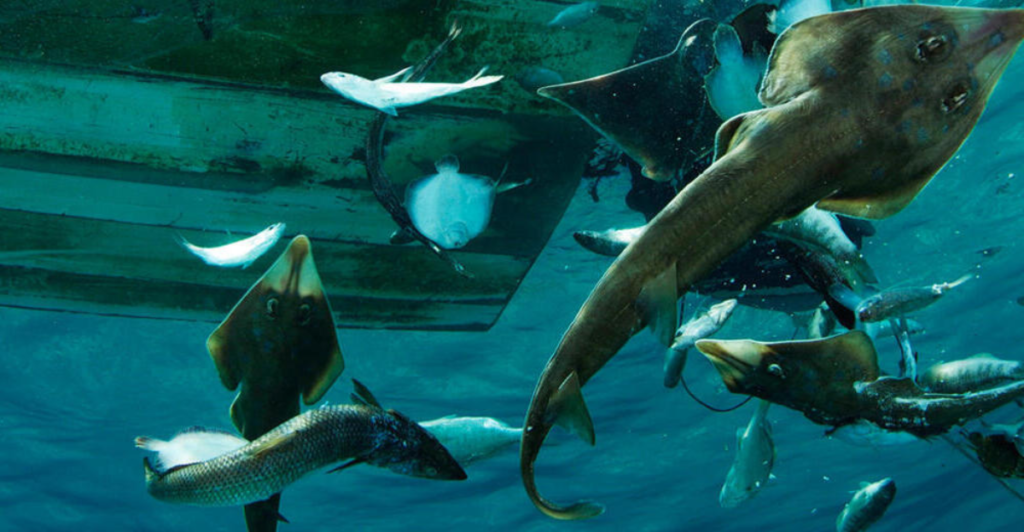
The thousands of marine mammals killed annually due to bycatch provide a shocking wake-up call for policymakers and consumers alike. Bans such as this have the potential to positively impact marine life and create a blueprint for future U.S. policies. For example, bans on commercial fishing, such as South Africa’s 10-year ban on fishing in areas known to have African penguins, have shown how we can prevent species from near extinction. Successful bans demonstrate that stricter measures can yield significant ecological benefits.
A Sustainable Future for Marine Mammals
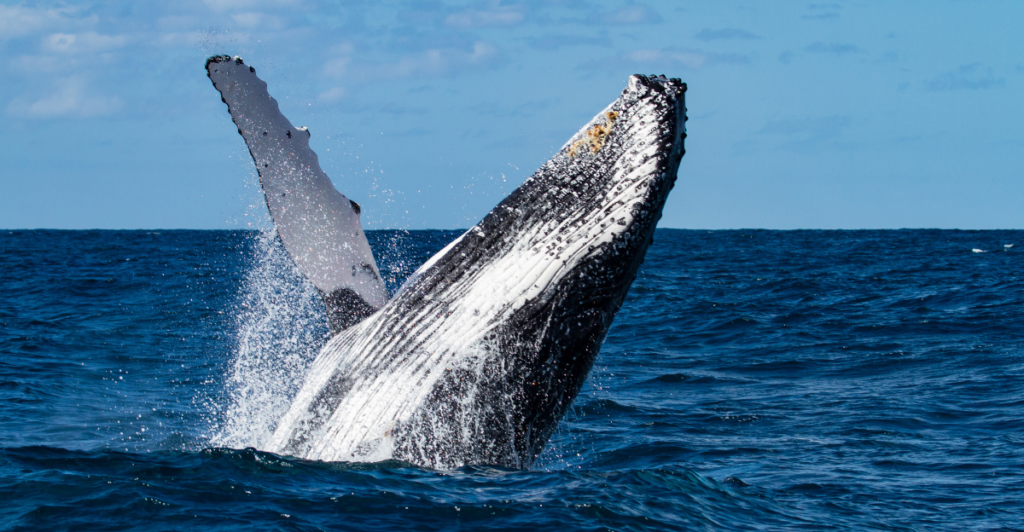
As we take our fishing practices to newer, more sustainable heights, we can prevent decreasing numbers in dolphin, whale, seal, shark and other marine mammal populations. Through continued advocacy, technological innovation, and consumer engagement in the fight to protect marine species, we create a future where marine mammal bycatch is significantly reduced.
Explore more of our trending stories and hit Follow to keep them coming to your feed!

Don’t miss out on more stories like this! Hit the Follow button at the top of this article to stay updated with the latest news. Share your thoughts in the comments—we’d love to hear from you!







